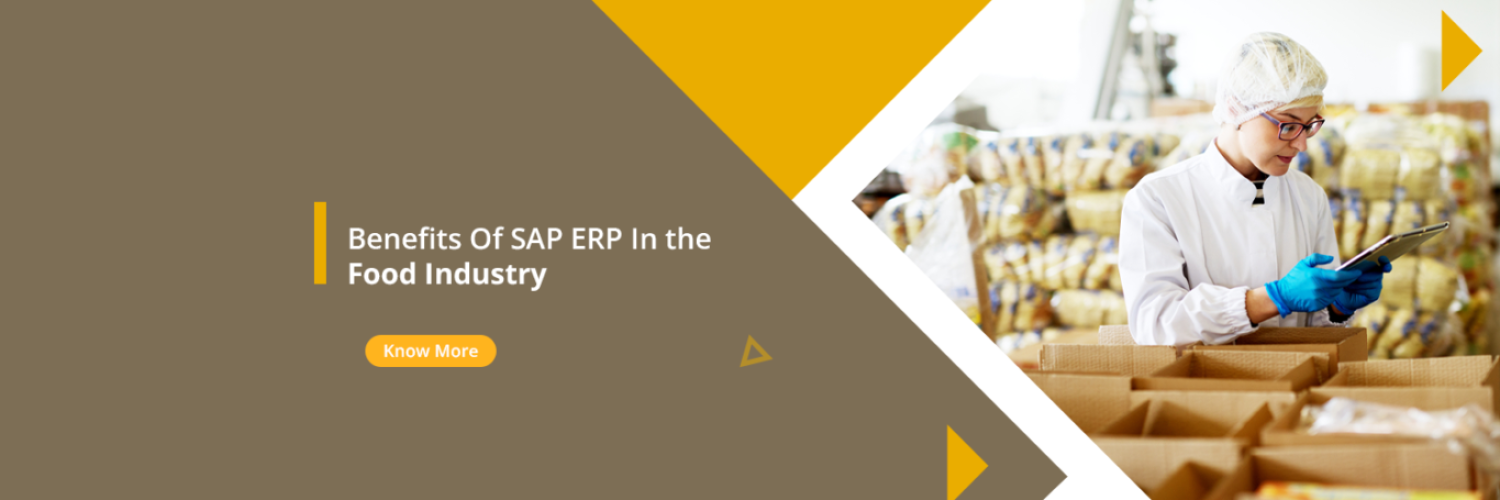Over the past few years, the food industry has undergone a significant revolution. The industry must overcome several challenges and intense competition, though, as a result of its quick expansion.
The demand for SAP Business One has increased recently. Numerous businesses have already adopted SAP cloud-based software solutions to improve their operations, regardless of their size or the goods or services they provide.
Regardless of whether they run a restaurant or a food supplier, business owners need to adopt the most recent technology to handle challenges like preserving food quality and hygiene, managing inventory, adhering to the most recent compliance, and automating management tasks for more efficient business operations.
Why SAP Business One for Food Industry
1. Lot Tracking
The lot tracking feature is extremely important in the food manufacturing industry. Tracking lots enables you to keep track of individual items and collections of items in your manufacturing sector.
In a nutshell, lot tracking keeps track of all the data relating to a particular batch of goods. It enables tracking multiple units of a stock item using the same lot number. Additionally, lot tracking makes it possible to quickly locate the inventory that needs to be tested or monitored.
2. Conversion Tracking
The primary duty of food production facilities is to consistently uphold quality standards, preventing food spoilage and keeping food fresh and edible.
Therefore, it is extremely important to keep track of food manufacturing dates and remove products with expiration dates from stock items.
With the help of an ERP, it is simple to keep track of the expiration dates for particular food item categories and set up a notification system to remove these items from inventory stock.
3. Quality Checks
Food quality eventually resembles customer satisfaction and safety. The quality check of each item and group of items can be easily facilitated by an ERP system for the food manufacturing industry.
The quality check can be easily set up before an item is advanced to the next level. As already mentioned, the lot tracking feature assists in locating food batches that need to be recalled, thereby preventing additional complications.
4. Promotional Offers
The success and profitability of a business are closely related to discounts and offers. Food processors frequently develop promotional offers that are specifically tailored to target their customers while maintaining their preferences on top. Often, this results in the business’s ability to generate more revenue.
These promotional offers can be easily managed by a food manufacturing ERP by managing the price changes for the specific customer without affecting the overall pricing system. The accounting and sales processes for businesses are automatically made easier by this feature.
5. One Centralized Platform
A single, centralised platform makes it simple for users to automate business processes and save labour for later use. An ERP provides an overview of the business and its internal happenings, allowing top business management authorities/officials to easily monitor and deal with the situation in real-time.
Wrapping Up:
To provide high-quality and safe products to its customers, the food industry must overcome numerous challenges. Each food and beverage company must adhere to the FDA’s stringent regulations, which cover everything from obtaining raw materials to delivering finished goods.
This can have an impact on productivity and product quality of food and beverages. So, if you are running a food or beverage business and are willing to invest in SAP Business One to run your business operations quickly and smoothly, then contact us at this email id sarbasis@fairfaxsolutions.net. Our team of experts at Fairfax Solutions will take care of all your business needs and provide a sound SAP Business One ERP solution.





